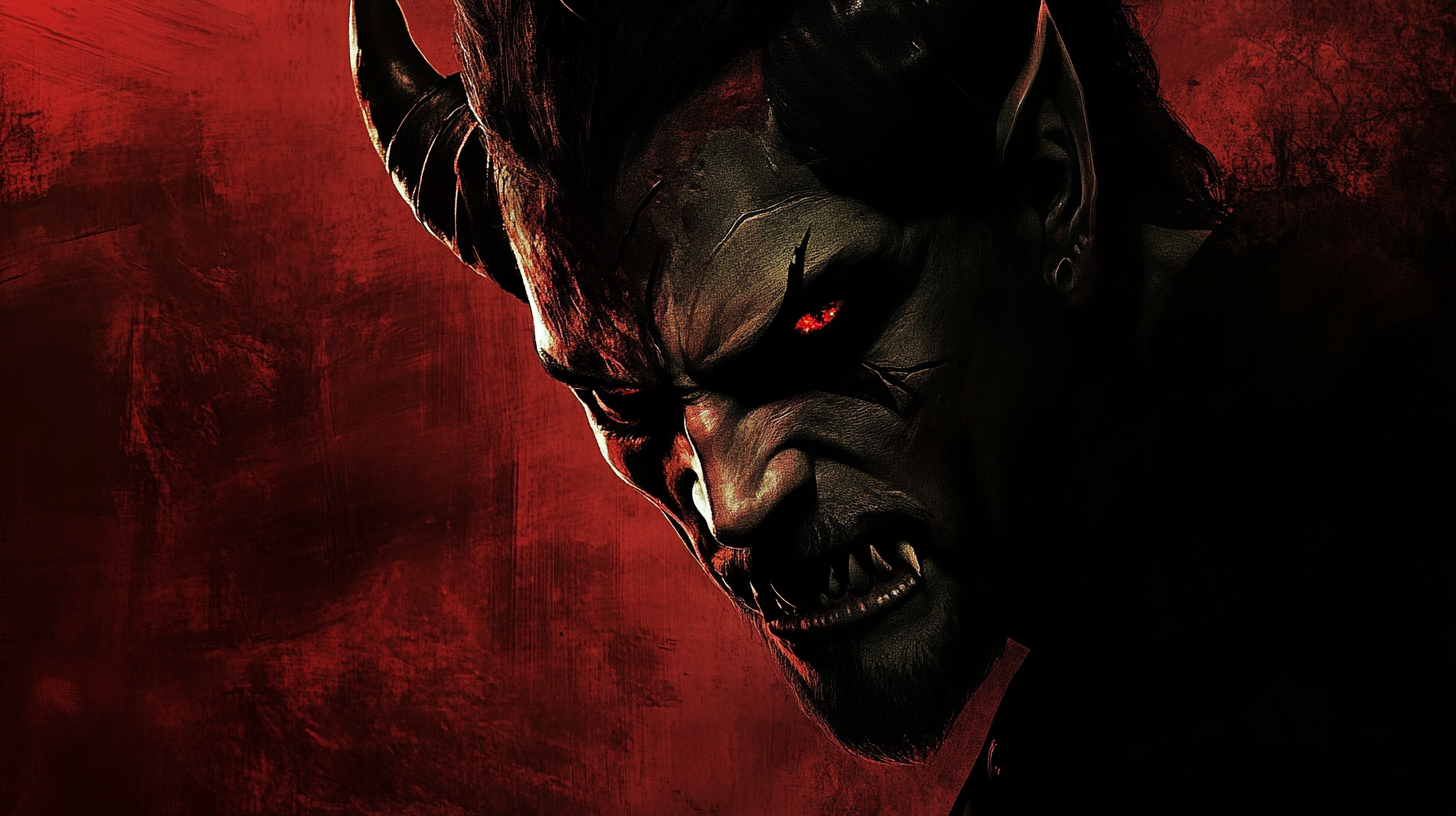
From a Catholic perspective, Satan is a fallen angel who rebelled against God and now serves as the chief adversary of humanity, tempting souls away from divine grace in an ongoing spiritual battle. He wants to kill you and make you suffer for eternity because you are made in the image of God.
Satan, from the Hebrew “śāṭān,” means “adversary” or “accuser.” In Catholic theology, it designates the angel who opposed God, becoming the leader of demons, as seen in Revelation 12:9, where he’s called “the ancient serpent” and “deceiver of the whole world.”
Originally an angel of light, Satan fell through pride and rebellion against God, as hinted in Isaiah 14:12-15 and Ezekiel 28:12-17. Catholic Tradition holds he refused to serve God’s plan, leading other angels in revolt, resulting in their expulsion from heaven (Revelation 12:7-9).
Catholics affirm Satan’s existence based on Scripture (e.g., Job 1:6-12, Matthew 4:1-11) and Tradition, viewing him as a real, personal being—not a mere symbol of evil. The Church teaches his influence is countered by Christ’s victory on the Cross (CCC 391-395).
Satan tempts through deception and suggestion, exploiting human weaknesses, as seen in the Garden of Eden (Genesis 3:1-6) and Jesus’ temptation (Luke 4:1-13). The Church warns he’s crafty but limited, unable to force the will, only entice it (CCC 395).
As “prince of this world” (John 12:31), Satan seeks to thwart God’s plan by sowing discord, sin, and despair. Yet, Catholic teaching emphasizes his power is finite, subordinated to God’s providence, and ultimately defeated by Christ’s redemption.
Angels, as God’s messengers (Hebrews 1:14), oppose Satan and his demons. St. Michael’s victory over Satan (Revelation 12:7-8) exemplifies this cosmic struggle. Catholics see good angels as protectors against demonic influence (CCC 336).
Yes, Satan appears throughout Scripture: as the serpent in Genesis 3, the accuser in Job 1-2, and the tempter in Matthew 4. Revelation 20:2 identifies him as “the dragon,” bound by God’s power, affirming his role in salvation history.
Satan’s influence prompts vigilance in prayer, sacraments, and moral living. The Church offers exorcisms and devotions like the St. Michael Prayer to combat his activity, reinforcing reliance on Christ’s triumph over evil (CCC 2850-2854).
Yes, Satan was defeated by Christ’s death and resurrection (Colossians 2:15). While he remains active until the end of time, his fate is sealed—eternal punishment in the “lake of fire” (Revelation 20:10). Catholics trust in God’s ultimate victory.
Satan tempts humans to sin, aiming to separate them from God, but he cannot undo Christ’s redemptive work. As Catholics, we believe salvation comes through grace and repentance, overcoming Satan’s snares, as Christ’s power prevails (1 John 3:8).